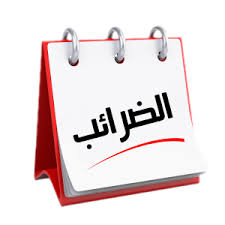
Nature of work
Tax examiners and collectors ensure that individuals and businesses pay the taxes they owe to the government. Their duties revolve around identifying taxes owed, reviewing filed tax returns to determine whether tax credits and deductions claimed are allowed by law, and ensuring tax returns are filed properly. They also contact taxpayers by mail or telephone to address problems and to request supporting documentation. Besides, their job includes conducting field audits and investigations of income tax returns to verify information or update tax liabilities. Evaluating financial information is part of tax advisers’ job. They do so by using their familiarity with accounting procedures and knowledge of changes to tax laws/regulations. Of course, they must keep records on each case they deal with, including contacts, telephone numbers, and actions taken. Finally, they notify taxpayers of any overpayment or underpayment, and either issue a refund or request further payment.Different levels of government collect different types of taxes. The federal government deals with personal and business income taxes. State governments collect income and sales taxes. Local governments collect sales and property taxes.
Environment of work
A tax examiner is lucky to get this job because flexible working hours are widely available. He can choose to work part-time, job-share or term-time. Besides, it is often possible to get a special leave, career breaks, as well as maternity leave (for female candidate). Long working hours are occasionally required. Absence from home overnight is occasionally needed, but overseas travel is uncommon. While on the training program, travel to a training center on a regular basis is necessary. Once in post, travel within a working day is common.He will be managing his work in district tax offices but it is also necessary to visit a variety of business premises. He cannot be self-employed/freelancer. In this occupation, an equal opportunities policy is practiced in recruitment and promotion.
Hopefully he likes change because mobility is a condition of employment; however, it may be possible to complete his career in the same geographical location. Posts involve working on his own initiative and exercising judgment/discretion. Be ready to deal with stressful confrontational situations at times.
Normally, smart casual clothes are accepted, but bear in mind that when meeting the public he is representing a government department.
Professional life
A tax examiner is able to work in different areas. He may move into specialist tax work in areas such as the large business service. Alternatively, he may work in the compliance office, dealing with fraud and prosecution work. He can also go on to train and develop new tax examiners. Another possibility is to go into tax policy advice work, advising the government on changes to the taxation regime. If none of these areas is appealing, he can choose to work as a taxation adviser/consultant in the private sector (in the taxation departments of large accountancy firms). When he gains enough experience of working on specific projects, he can become a specialist in a certain field. He may also be able to move to a more strategic role in general management.Mobility will help him progress more and gain a promotion. While training, try to move to different locations to gain maximum exposure to the business in order to maximize his chances of getting the job.
He should never stop improving his proficiency. He will be invited to attend training workshops on a regular basis.
Range of starting salary is: 35000-45000 SYP
Getting the job
The degrees which are compatible with this post are: Economics, Accountancy and Finance, and Maths/Statistics. However, this particular occupation does not necessarily require a postgraduate degree. But candidate should know that if he wish to progress at work, he needs to get as many professional qualifications as he can.It is not essential to have pre-entry experience, but it can be highly beneficial. Experience can include vacation placements, sandwich courses or part-time employment that offers business experience.
Skills
In order to be successful at work, tax examiner needs to have commercial awareness, with an interest in business and an understanding of how an organization works and manages resources. He also needs to have a high level of numeracy, accuracy and independent thinking. It is important to have the ability to make decisions, express views confidently and democratically, and explain complex financial information in clearly. Professionalism and commitment is a must in this job as well as the confidence to know where his expertise ends and another team member's begins. He should have excellent oral and written communication skills, IT proficiency, and project management skills. Since he will work with colleagues at all levels including non-finance members of staff, he definitely needs to possess strong interpersonal and teamwork skills. However, he should also be able to work on his own initiative and to remain impartial. It is essential that he has a lively and enquiring mind with a logical approach to work –with analytical and problem-solving skills. he will also need organizational skills with the ability to work under pressure and to deadlines. Finally, he should have stamina and motivation to juggle the demands of work and study. Sources and references
If you need any further information on what is included in this file, you can visit the following website: Arab Standard Classification of Occupations, 2008, Ed. Arab Labor Organization.
Summary
The duties and responsibilities of tax examiners, collectors, and revenue agents vary. They usually deal with the simplest tax returns—those filed by individual taxpayers with few deductions and those filed by small businesses.They have to ensure that organizations and individuals pay the correct amount of tax at the right time. They are responsible for detecting and investigating tax evasion. Their role also involves offering information and advice on a range of tax and related issues.
